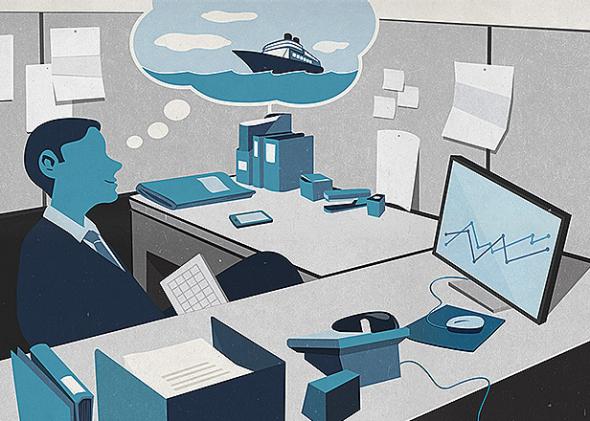
Maximizing Happiness in the Here and Now – and Later

Elizabeth Dunn and Michael Norton are co-authors of “Happy Money: The Science of Smarter Spending” (Simon and Schuster) and professors at the University of British Columbia and Harvard Business School respectively.
In 1935, average life expectancy was around 60 years in the United States; today, it’s around 75. The retirement age, on the other hand, has increased by only 2 years over that same time frame: traditionally 65, it will rise to just 67 for those born in 1960 or later. In other words, retirement used to be reserved for the lucky few. Now people are on average enjoying a full decade of life after retirement – and many much longer.
There’s a problem, though. Most people are not saving early enough for retirement. When asked to list all of the things that they deem essential for a happy retirement, the cost of people’s wish lists (a luxury car, vacations, and so on) far exceeds their projected income from their retirement savings.
Why the shortfall? The problem with saving, of course, is that – if we’re being honest – saving seems no fun at all. It requires us to put off the fun we could have spending that money today for potential fun we could have with that money once we retire. And why put off until tomorrow the fun you could have today?
“Now imagine instead that you paid for that vacation - all expenses included - months in advance. Suddenly the entire trip feels free. And research shows that we enjoy experiences more when we pay up front.”
Because, simply put, research shows that waiting for the things we love greatly increases our enjoyment of them once we finally get them. In other words, saving now doesn’t just allow us to have more happiness when we retire. If managed correctly, saving now can make us happier right now, in our everyday lives.
Putting into practice a principle that we call “Pay Now, Consume Later” offers the opportunity to reap more happiness for every dollar we spend. Paying now and consuming later is not easy, of course. If anything, we all want to consume now and pay much later – probably why credit card debt has risen so rapidly since their introduction.
Imagine a nightmarish vacation where you had to pay for every single activity in cold hard cash – every margarita, every slice of pie, every towel for the pool. Forking over cash hurts so much that economists have given it a name: the pain of paying. Now imagine instead that you paid for that vacation – all expenses included – months in advance. Suddenly, the entire trip feels free. And research shows that we enjoy experiences more when we pay up front.
And paying ahead of time has another benefit. It forces us to consume later. Waiting for months for your vacation to begin may not sound that appetizing. But when stuck in a cubicle at work in the cold winter months, daydreaming about that upcoming vacation can be an immense source of happiness. In fact, research shows that people often experience one of the biggest boosts in happiness before they go on vacation. Consuming later – forcing ourselves to wait – allows us to experience all the excitement that comes with knowing that good things are coming your way.
Saving is in some sense a perfect commitment mechanism to force us all to pay now and consume later. By forgoing some of the things we want right now, we set ourselves up to experience the joy of anticipation – while avoiding the pain of paying. So we should start thinking of saving as not just maximizing our happiness tomorrow, but also maximizing our happiness today. Making such changes now has the potential to increase the happiness Americans experience in their new “retirement decade.”